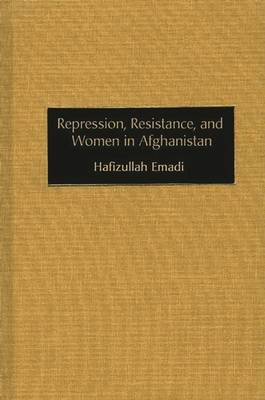
- Retrait gratuit dans votre magasin Club
- 7.000.000 titres dans notre catalogue
- Payer en toute sécurité
- Toujours un magasin près de chez vous
- Retrait gratuit dans votre magasin Club
- 7.000.0000 titres dans notre catalogue
- Payer en toute sécurité
- Toujours un magasin près de chez vous
Description
Afghan women have faced an exhaustive struggle in the battle to change their status and improve their situation. Emadi takes a long look at the role of development and modernization policies implemented by the state in the pre- and post-Soviet eras, under the Taliban, and beyond. He finds that such policies have failed to bring about much- needed change and improvement for women. Modernization strategies benefited only a small segment of urban women and left the plight of rural women unchanged. Although a small segment of middle- and upper-class women organized themselves and fought to bring about changes in their status and to end gender inequality, their efforts alone did not meet with much success.
Islamic orthodoxy and orthopraxy in the Taliban era restricted women's freedom of movement, access to education, and medical care. Using personal accounts not readily available to researchers or scholars, Emadi explores the diverse factors that contributed to women's oppression both at home and in society. This study provides a detailed analysis of state policies toward women's emancipation within the context of a traditional Islamic society. It chronicles the course of the women's movement and women's organizations still active in the political arena and puts forth an alternative plan to involve women in the reconstruction process in both urban and rural areas.Spécifications
Parties prenantes
- Auteur(s) :
- Editeur:
Contenu
- Nombre de pages :
- 216
- Langue:
- Anglais
Caractéristiques
- EAN:
- 9780275976712
- Date de parution :
- 30-08-02
- Format:
- Livre relié
- Format numérique:
- Genaaid
- Dimensions :
- 152 mm x 255 mm
- Poids :
- 476 g

Les avis
Nous publions uniquement les avis qui respectent les conditions requises. Consultez nos conditions pour les avis.






